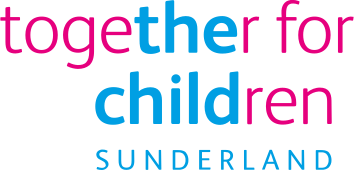Teaching and Learning
Every child deserves the best possible start in life and the support that enables them to fulfil their potential. Early years providers must guide the development of children's capabilities with a view to ensuring that children in their care complete the Early Years Foundation Stage (EYFS) ready to benefit fully from the opportunities ahead of them.
There are seven areas of learning and development that must shape educational programmes in early years settings. All areas of learning and development are important and inter-connected (EYFS).
Teaching should not be taken to imply a 'top down' or formal way of working. It is a broad term that covers the many different ways in which adults help young children learn. It includes: their interactions with children during planned and child-initiated play and activities; communicating and modelling language; showing, explaining, demonstrating, exploring ideas, encouraging, questioning, recalling; providing a narrative for what they are doing; facilitating and setting challenges.
It takes account of the equipment that adults provide and the attention given to the physical environment, as well as the structure and routines of the day that establish expectations. Integral to teaching is how practitioners assess what children know, understand and can do, as well as taking account of their interests and dispositions to learn (characteristics of effective learning), and how practitioners use this information to plan children's next steps in learning and to monitor their progress.
Useful links
Help for Early Years Providers | An online service which features resources to support childminders and staff in PVI settings to understand and implement the reforms: Help for early years providers - Department for Education
EYFS Profile handbook | Guidance for local authorities and early years providers on completing EYFS profile assessments at the end of reception year to support practitioners to make accurate judgements about children's attainment: Early years foundation stage profile handbook - GOV.UK (www.gov.uk)
Development Matters | Government curriculum guidance for the EYFS, can support providers to deliver the EYFS learning and development requirements. It can be used to design an effective early years curriculum: Development Matters - GOV.UK (www.gov.uk)
Progress check at age 2 |When a child is aged between two and three, practitioners must review their progress and provide parents and/or carers with a short-written summary of their child's development in the prime areas. Non-statutory guidance is available to support practitioners in doing so: Progress check at age 2 - GOV.UK (www.gov.uk)
Physical Activity | Guidance on physical activity from the Chief Medical Officer: Physical activity guidelines: UK Chief Medical Officer's Report - GOV.UK (www.gov.uk)
Getting it right from the start | This research was carried out in 2024. It explores how early years (EY) practitioners understand the early years foundation stage (EYFS) statutory framework and apply it to the education and care of babies and toddlers : Getting it right from the start: how early years practitioners work with babies and toddlers - GOV.UK (www.gov.uk)
Early Years Qualifications | Requirements and standards. The qualifications that staff must hold to be included in the specified staff:child ratios at levels 2, 3 and 6 of the early years foundation stage (EYFS): Early years qualification requirements and standards - GOV.UK (www.gov.uk)
Qualification checker | A useful tool to check Early Years qualifications: Early years qualifications achieved in England - GOV.UK (www.gov.uk)
Special Educational Needs | Early years providers must have arrangements in place to support children with Special Educational Needs and Disabilities (SEND): SEND Code of Practice January 2015 (pdf) - www.gov.uk





